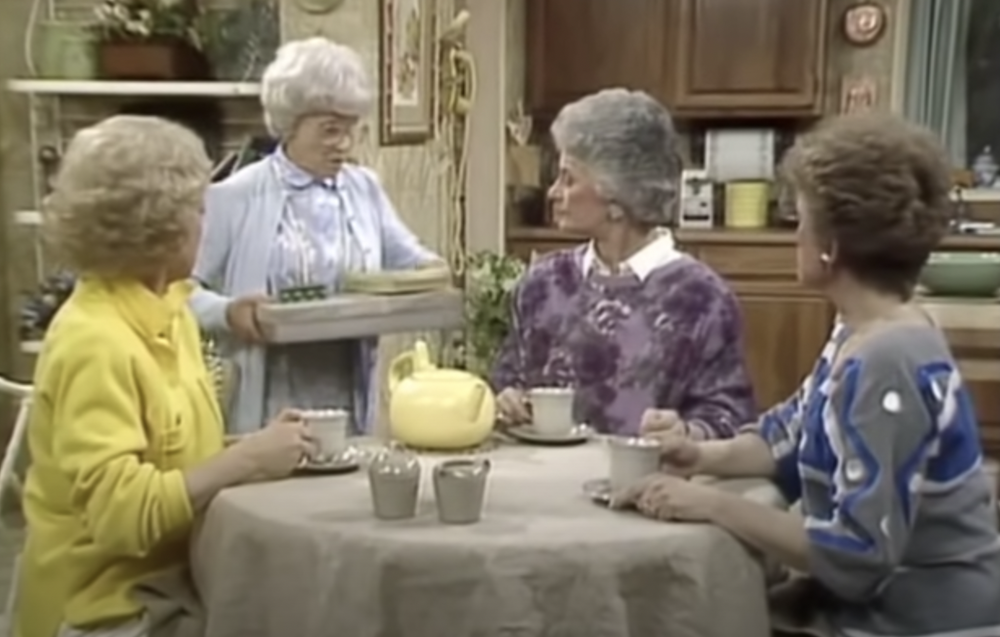interviews
Where Pop Culture and Literature Intersect: An Interview with J. Robert Lennon and Rob McCleary

“And So, We Commence” by J. Robert Lennon and “Captain Stubing Has Collapsed” by Rob McCleary are featured in the 200th issue of Recommended Reading, along with pieces by Morgan Parker and Téa Obreht. To commemorate the 200th issue, dubbed “The 200 Episode Club,” the writers were asked to write about the 200th episode of a sitcom.
Chelsea Baumgarten: The idea for this project was to write about the 200th episode of a sitcom. Why did you choose to write about The Cosby Show? How do you think fiction writers can contribute to a political, and often very sensitive, conversation like the one that surrounds Bill Cosby?
J. Robert Lennon: I tend to steer away from politics in my fiction, so The Cosby Show seems like a weird choice in retrospect. It was an interesting technical challenge, and once I got the idea, I couldn’t turn away from it. The train wreck that is Cosby just seemed so fascinating to me: the cruelty, the delusion, the lies. The anger and resentment he must have felt to put so many women through such humiliation. And his having to act on so many levels — many of the rapes were, astoundingly, fake auditions. I mean, who knows what was going through the real guy’s head all those times he was pretending to be America’s greatest dad — maybe just some great, roaring cognitive-dissonance wind — but I wanted to take a stab at imagining it.
CB: In “And So, We Commence,” Cosby, or Cliff, views his public persona–wholesome, funny TV dad–as the “real” him and his private persona–a serial rapist–as a role he plays. Eventually the two become inseparable and he can’t identify what’s real. Can you talk about this approach to writing your piece, and about the fragmentation and self-denial of Cliff?
JRL: I guess a writer wants — needs — to think that even the most despicable person is worthy of understanding, compassion, even. And maybe that’s my answer to your earlier question, about writers contributing to a sensitive conversation. For me, understanding is the only real entry into a character — even one, like Cosby, whose crimes I despise, and one I feel, like a lot of people, personally betrayed by. He made me laugh so much! I ground the grooves to dust on his first few standup records. I feel shaped by his humor — it’s in my blood. And now I want it out. So I guess my move was to imagine that maybe, at some point, Cosby would have preferred to be Cliff, would want to remain Cliff, rather than to return, permanently, to the self that felt compelled to rape. I had to believe that to want to write about him. And believing that let me feel the drama of the curtain call — that final moment when the game was finally up.
CB: Rob, in “Captain Stubing Has Collapsed,” you riff off of Frank O’Hara’s, “Poem [Lana Turner has collapsed!].” O’Hara, who famously loved visual art and film, often addressed popular culture and celebrity life with his poetry. Some writers, however, are hesitant to do so. What do you think writers can gain from engaging with popular culture in their work?
Rob McCleary: I think the issue isn’t what the author stands to gain from engaging popular culture as what they stand to loose from making an arbitrary point of not engaging it. The idea that there is a hard stop between “popular culture” and art appeals to our need to believe that there is a hierarchy of creativity, beginning with weighty novels about “important” subjects, and descending in order through film to television, then to all forms of internet expression, bottoming out at the lowly, self-published Kindle. (Sorry lowly, self-published Kindle. I’m not picking on you, I’m just trying to make a point.)
Mainstream publishing is happy to play along with this consoling illusion because they haven’t figured out a way to monetize the mashup culture which has come to dominate our world like film, television, and the internet have. They are happy to reinforce our timid, childish belief in life as a meritocracy where only the best works of art get attention, and they can perish the idea that someone could’ve written a best seller, an important cultural statement, or a deep insight into our current condition that will never see the light of day.
Not engaging popular culture as a point of honor makes about as much sense as refusing to like a Taylor Swift song for the sole reason that it’s a Taylor Swift song. It also protects us from the frightening reality that creativity does not observe arbitrary rules, formats, human-imposed hierarchies of importance, cultural norms, or even the shared social construct we refer to adorably as “reality.” It protects us from the fact that we now live in a post-McLuhan world where the medium is no longer the message, the medium is irrelevant. And if you cannot accept that, you risk becoming irrelevant.
CB: Frank Sinatra, Andy Warhol, Lana Turner, and Captain Stubing all collapse in your piece, and the eventual collapse of The Love Boat series itself also looms. There is something so sad and powerful in the lines, “Frank Sinatra does not know why the Frank Sinatra records no longer sell,” and, “Andy Warhol has had enough of Andy Warhol.” What do you think we invest in celebrity personas, and why are we so affected by their downfalls?
RM: Celebrity is, at it’s atomic level, fame. And fame is one of the currencies of status, the secret, shameful obsession of human society. In his book Status Anxiety, Alain de Botton states:
“Every adult life could be said to be defined by two great love stories. The first — the story of our quest for sexual love — is well known…it is socially accepted and celebrated. The second — the story of our quest for love from the world — is a more secret and shameful tale. If mentioned, it tends to be in caustic, mocking terms, as something of interest chiefly to envious or deficient souls…. And yet this second love story is no less intense that the first, it is no less complicated, important or universal, and its setback are no less painful. There is heartbreak here too.”
It’s a cliché to say the trials and failures and destruction of modern day celebrities is our Greek tragedy, which does not automatically make it any less true. Scholar Bruce Meyer states that tragedy in the Greek sense is impossible in our western, Christian universe. God is Santa Claus. Always looking out for us. Omniscient. Helping professional athletes catch Super Bowl winning passes. Deciding that dum dums like George W. Bush should ascend irresistibly to the Presidency. In the light of our everyday struggles and pointless sufferings we are presented with some real head scratchers. Did God hate the loosing Super Bowl team? If God cured my kid’s leukemia, couldn’t we have all saved a lot of time and effort by Him simply not giving them leukemia in the first place? Enter celebrity tragedy with the answers.
God is supposed to provide us with the satisfying, ordered (therefore comic) resolution to all our problems. Celebrity train wrecks reflect the reality of the bullshit tragedy of our day-to-day lives, flawed to its core, like us. Self-sabotaging, imbecilic, and above all consumed with the sort of singular narcissism that makes us believe there’s a God concerned with the utterly dreary minutiae of our daily lives. We are obsessed with celebrity culture not because we are obsessed with celebrities. We our obsessed with celebrity culture because we are obsessed with ourselves.









